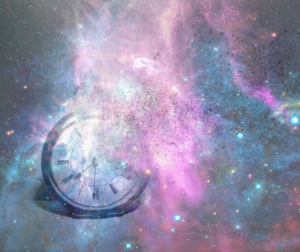Psalm 19:1-4 says “The heavens declare the glory of God; the skies proclaim the work of his hands. Day after day they pour forth speech; night after night they reveal knowledge. They have no speech, they use no words; no sound is heard from them. Yet their voice goes out into all the earth, their words to the ends of the world.”
This is one of the several passages of scripture that states that God’s world glorifies Him. This passage of scripture states that the heavens declare God’s glory and that the skies proclaim His handiwork. It also says that although they have no audible voice like people have when they speak, nevertheless they do have a voice in some sense, and this voice goes out to the ends of the Earth. By this, the psalmist means that it doesn’t matter where you are, you can receive this celesial declaration. But how exactly do the heavens declare God’s glory?
During the course of my theological studies throughout the years, I’ve learned that the heavens declare God’s glory in more than one way. There are actually several different ways in which this magnificent universe declares God’s glory to people.
The Heavens Declare The Existence Of God
First and foremost, the universe declares God’s glory because it reveals evidence that He exists. Creation points to a Creator. Design points to a designer. A sculpture points to a sculptor. Likewise, the universe points to a Supreme Being that created it all. This is what the psalmist meant when he said “The skies proclaim the work of his hands.” It does so both on the intuitive level as well as on the scientific level. On the intuitive level, people have always inferred that there was a Creator or creators from the complexity of life and the orderliness of the cosmos. Common sense dictated that this magnificent world with all of the complex organisms and creatures that scamper about in it, and the orderly motion of the sun, moon, and stars, could not be an accident of chance and necessity, but must have been planned.
However, one can go beyond mere intuition and reach this same conclusion. Science has been making the case for a Creator stronger and stronger within the past century. We now have scientific evidence that the universe is expanding, and if it’s expanding, it must have had a beginning. This is because if the universe continuously grows larger as time moves forward, then if you rewind the expansion back in time, the universe gets progressively smaller. Rewind the expansion far enough back in time, and the universe becomes no larger than the period at the end of this sentence. Rewind it back farther than that, and the universe shrinks down to nothing! The expansion of the universe was predicted in the early 1900s by the theory of relativity that Albert Einstein had developed, by two independent cosmological models by Alexander Friedman and George Lemaitre, and then was empirically confirmed by the red shifts of the light from distant galaxies by the American Astronomer Edwin Hubble in 1929. The expansion, traced back in time, lead to the conclusion that the universe began to exist in an explosion-like expansion. This expansion-like explosion was derisively named “The Big Bang” by the scientist Fred Hoyle.
The fact that the universe had a beginning to its existence shows that a supreme Creator brought it into being. How so? Well, we know that anything that begins to exist had a cause that brought it into being. This is pretty evident from the fact that 1; something cannot come from nothing. Why? Because nothingness has no properties. Nothingness is the absence of being. To say “Nothing is there” is to say “There is not anything there”. If nothingness has 0 properties, then how can it bring things into existence? If it has no properties at all, then it clearly has no causal properties either. 2; We have no examples whatsoever of things popping into being without a cause. I’ve never witnessed anything *poof* into existence, and I don’t know anyone who ever has either. Yet, if things can come into being from nothing, why don’t we witness it happening more often. 3; Our common experience and scientific evidence constantly confirms this premise and never invalidates it. Whenever we are present when something comes into being, we see that it has a cause bringing it into being.
So, given that everything that begins to exist has a cause for its beginning, and the universe had a beginning to its existence, it follows that the universe had a cause for its existence. What kind of cause could produce the universe? Since The Big Bang was the origin of all matter, energy, space, and time, the cause of the universe must be transcendent to matter, energy, space, and time. It must non-spacial, non-temporal, immaterial, powerful, supernatural, and personal. Non-spacial, because there was no such thing as space until this cause brought it into being. It cannot be inside of space if space did not exist until this cause produced it. It must be non-temporal, because time began to exist at the big bang. Again, the cause cannot be in time if there was no such thing as time until this cause produced it. It must be immaterial because material objects cannot exist in the absence of space, ergo it must be immaterial for the same reason it must be non-spacial. Non-spaciality and non-materiality go hand in hand. One cannot be a material object and be non-spatial. Likewise, something cannot be immaterial and take up space. The cause must be enormously powerful because it was able to bring the universe into being without using pre-existing materials. It must be supernatural because nature (i.e the universe) is what came into existence, and there cannot be natural causes in the absence of nature. It must be a personal agent for 3 reasons, but for brevity’s sake, I’ll only mention one. It must be personal because it is immaterial. Why do I say that? Because of things which are immaterial, they can only fall into one of two categories; abstract objects (like numbers) or unembodied minds. But abstract objects do not stand in causal relation to anything. That’s part of what it means to be abstract. The number 7, for example, cannot cause any effects. Therefore, since abstract objects are causally impotent, the cause must be an unembodied mind. In conclusion, the universe was brought into being by a non-spacial, non-temporal, immaterial, powerful, supernatural, personal mind. This sounds a lot like God to me!
Secondly, The Fine Tuning of the laws of physics. Over the last 50 years, scientists have discovered that the laws and constants of physics astonishingly come together in surprising ways to make the universe habitable for life. If these constants and quantities had been off by even a hair’s breadth, the balance would be destroyed, and life could not exist in the universe. For example, had the strong nuclear force been weaker or stronger by even 1 part out of a nonillion, the universe would have consisted of either hydrogen alone, or heavy elements in the absence of hydrogen. If gravity had been stronger by 1 part out of 10^36, the stars would have burned up too quickly and too unevenly for life to form. If gravity had been weaker, the elements essential for life would never have been synthesized in the core of stars because the stars would have never reached a high enough temperature to ignite nuclear fusion. If the ratio of the number of electrons to protons had been off by a little bit, electromagnetism would have dominated gravity, which would have prevented the formation of galaxies, stars, and planets. Astrophysicist Hugh Ross, in his book The Creator and The Cosmos said that the odds of the number of electrons to protons being just right is 1 in 10^37, and he used an analogy to help us get our heads around this huge number. He said to cover 1 billion continents the size of North America in dimes and to stack all of them up to the height of the moon (a height of about 239,000 miles), and to paint 1 dime red. Then blindfold a friend and ask him to pick out 1 dime. The odds that he would pick the red dime are 1 in 10^37. The same odds as the ratio of electrons to protons being just right. The odds that these things could have come together by chance blows the human mind! It is far more reasonable to believe that the universe is finely tuned by a intelligent Creator than to believe that they took the life permitting values by chance.
Thirdly, not only must the constants and quantities of physics be fine tuned, there are over 400 different things that must be just right in a local region in order for that local region to harbor life. The fine tuning of physics affects the entire universe, the fine tuning I’m about to mention affects only regions of the universe. For example, any planet, in order to have life, must be neither too close nor too far from its home star. If it’s too close, the planet would be so hot that liquid water could not exist on it. It would all boil away. If the planet were too far away from it’s home star, the planet would be so cold that any water on the planet would be frozen. It must be the just right distance from its home star in order for liquid water to exist on it. Moreover, it needs to have a rotation rate of 24 hours, no quicker and no slower. It needs to have a moon of the just right size. The life harboring planet itself must be neither too large nor too small. The life harboring planet cannot be orbiting a star that is too large or too small. The planet must also be surrounded by 4 gas giants of the just right size and the just right distance. If any of these things, and more, were off, life would not be possible.
For brevity’s sake, I’d sped through these arguments for the existence of God which use scientific evidence to support their premises. What I’ve said here doesn’t even begin to do justice to these arguments. For a more in depth treatment of the argument from the universe’s origin, the argument from universal fine tuning, and the argument from local fine tuning, pick up my book Inference To The One True God, or check out these blog posts,
*“The Kalam Cosmological Argument”
*”The Fine Tuning Argument For God’s Existence”
But my treatments of these arguments in the book Inference To The One True God are far more in depth and polished than their blog post equivalents. So be sure to check out both the blog posts and the book.
The Heavens Declare The Depth Of God’s Love
One of the common complaints I hear from atheists is that if God made the universe for human beings to live in, why did He make it so large? They wrongfully conclude the enormous size of the universe is a good indicator that the universe was not made with human beings in mind, and that this either disproves the doctrine of creation, or at least the biblical view of it. The problem with this argument is that, for one thing, there are scientific reasons why the universe must be as large as it is. And by that, I mean that had the universe been larger or smaller, life could not possibly exist. But I won’t go into that here. Read chapter 3 of my book Inference To The One True God for that explanation. But wholly apart from the fact that the size of the universe itself is a finely tuned parameter required for life, The Bible actually gives us some spiritual reasons why God made the universe as large as He did.
One of these reasons was to give us something to compare His love for us to. Psalm 103:11 says “For as high as the heavens are above the earth, so great is his love for those who fear him;” This verse tells us that the height of the heavens above the Earth are a point of comparison of His love. As high as the heaven are, that is how great God’s love for us is. God’s love is as deep and as vast as the edge of space is from the surface of the planet Earth. If the cosmos stopped at the cloud tops, we would probably think “Meh. God’s love for us doesn’t seem that great”. But given that the universe is billions of light years wide, we can go “Wow! That’s how much God loves us!?”
The Heavens Declare The Power Of God and His Attentiveness
The Bible tells us that when we want to get a good idea of who God is, we need to look to the cosmos. Isaiah 40:25-26 says “‘To whom will you compare me? Or who is my equal?’ says the Holy One. ‘Lift up your eyes and look to the heavens: Who created all these? He who brings out the starry host one by one and calls forth each of them by name. Because of his great power and mighty strength, not one of them is missing.'”
The universe declares how mighty and powerful God is. I think of this whenever I watch a science program like Neil DeGrasse Tyson’s Cosmos: A Spacetime Odyssey or whenever I go outside at night and look up at the stars. I fall to my knees in awe of God because I think of how powerful God must be to not only have created the universe, but to hold it all in the palm of His hand! God’s “got the whole world in His hands” as the vacation Bible school song goes. How mighty and powerful is God that He can manage and sustain our universe of a billion trillion stars and planets! “Because of His great power and mighty strength, not one of them is missing.” God doesn’t forget about a single star. He knows each star by name. If that is the case, then I can be confident He will never forget about me. If He knows the names of a billion trillion stars and doesn’t forget a single one of them, He can remember the names of every human being on the planet. “To whom will you compare me?” God asks rhetorically. “Look up to the heavens.” is the answer.
Think of how awesome our universe is and then remember that God said to use the universe to compare Him to. If God had made a tiny universe as the atheist thinks He should have done, God could not say to use the universe to compare Him to, because if He did, then we would conclude that God isn’t very awesome.
The Heavens Declare That God Is Not Just A Masterful Engineer, He Is Also A Skillful Artist
Who hasn’t been struck by the sheer beauty of nature? How could you not gaze at the night sky adorned with various stars and think “How beautiful!”? How many times on a nice warm spring day have I looked at the blue sky with the brown and green trees up against the light blue background of the sky, with birds of different colors flying about, and thought “This is so lovely”? And who doesn’t enjoy a good eclipse or a meteor shower? Who doesn’t love the red, orange, and brown adorning the trees in the season of autumn. Nature is just simply beautiful!
This tells us something about nature’s Creator. God is more than a skillful engineer — someone who is intelligent enough to create a universe than runs efficiently — He is also a skillful artist. God has a thing for aesthetics. Theoretically, God could have created a universe that ran just as well as ours did, but was ugly to look at. But He didn’t. He made a universe that was pleasing to the eyes.
Conclusion
The Heavens declare the glory of God. How? They declare His existence, the depth of His love, the immensity of His power, and His love for beauty.





